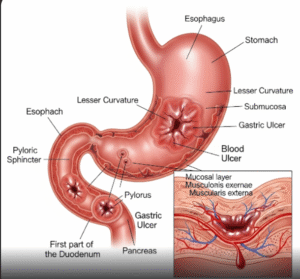Overview
Brain fog is a term used to describe a temporary state of mental cloudiness or cognitive dysfunction, where individuals may experience difficulty concentrating, remembering information, or thinking clearly. It is not a medical diagnosis itself but a symptom associated with various physical, mental, or lifestyle factors. Brain fog can significantly affect productivity, daily tasks, and quality of life if persistent.
In South Korea, neurology clinics, wellness centers, and integrative medicine facilities provide comprehensive evaluation, treatment, and lifestyle guidance to help patients manage brain fog and improve cognitive function.
Key Facts
Highlights:
➡️ Brain fog manifests as mental fatigue, lack of focus, and memory lapses.
➡️ It can be caused by physical, psychological, or lifestyle factors, such as stress, sleep deprivation, or nutritional deficiencies.
➡️ Not a standalone disease, but often a symptom of underlying conditions like hypothyroidism, anemia, or chronic fatigue syndrome.
➡️ Early identification of triggers and causes can help prevent long-term cognitive impairment.
➡️ South Korea provides advanced cognitive assessments, lab tests, and personalized therapy programs for brain fog management.
What is Brain Fog?
Brain fog is a state of reduced mental clarity, affecting cognitive functions such as:
- Attention and concentration
- Memory recall and retention
- Decision-making and problem-solving abilities
- Mental processing speed
- Overall sense of mental sharpness and clarity
It often feels like thinking through a thick cloud, where thoughts are slow, confused, or fragmented. Brain fog can be mild and intermittent or chronic and persistent, depending on the underlying cause.
What Symptoms are Related to Brain Fog?
Symptoms associated with brain fog include:
- Difficulty focusing on tasks or conversations
- Forgetfulness or memory lapses
- Mental fatigue or feeling “sluggish”
- Confusion or difficulty organizing thoughts
- Lack of motivation or mental energy
- Headaches, irritability, or mood fluctuations
- Sleep disturbances contributing to cognitive impairment
Highlights:
➡️ Brain fog can affect work performance, social interactions, and daily life.
➡️ Symptoms often overlap with stress, depression, or chronic illness, so proper evaluation is key.
What Causes / Possible Causes of Brain Fog?
Highlights:
➡️ Sleep Deprivation: Inadequate or poor-quality sleep impairs cognitive function.
➡️ Stress and Anxiety: High stress levels reduce attention span and memory efficiency.
➡️ Nutritional Deficiencies: Lack of essential vitamins and minerals such as B12, iron, or magnesium.
➡️ Hormonal Imbalances: Thyroid disorders, adrenal fatigue, or menopause-related changes can contribute.
➡️ Chronic Medical Conditions: Diabetes, autoimmune disorders, fibromyalgia, or chronic fatigue syndrome.
➡️ Medications: Certain sedatives, antihistamines, or anti-anxiety drugs may impair cognition.
➡️ Infections: Viral infections, including post-COVID syndrome, can cause persistent brain fog.
➡️ Lifestyle Factors: Poor diet, dehydration, alcohol use, or excessive screen time.
➡️ Mechanism: Brain fog occurs due to impaired neurotransmitter function, reduced oxygen delivery, or hormonal dysregulation, which affects cognition and mental clarity.
When Should I See My Doctor?
Highlights:
➡️ If brain fog is persistent, worsening, or interfering with daily life.
➡️ If accompanied by neurological symptoms such as numbness, weakness, vision changes, or speech difficulties.
➡️ If associated with mood disorders, chronic fatigue, or systemic illness.
➡️ For sudden cognitive changes in adults, which may indicate metabolic or neurological disorders.
➡️ Early medical evaluation ensures proper diagnosis and management, preventing long-term cognitive decline.
Care and Treatment
Management of brain fog focuses on addressing underlying causes and optimizing cognitive function:
Highlights:
➡️ Lifestyle Modifications:
- Adequate sleep and consistent sleep schedule
- Regular physical exercise to improve blood flow and oxygenation
- Stress reduction techniques, including meditation or yoga
➡️ Nutrition and Hydration:
- Balanced diet rich in vitamins, minerals, and antioxidants
- Adequate water intake to maintain cognitive function
➡️ Medical Management:
- Treat underlying conditions such as thyroid disorders, anemia, or hormonal imbalances
- Adjust medications that may impair cognition
➡️ Cognitive Training: Memory exercises, puzzles, and mental stimulation techniques
➡️ Mental Health Support: Counseling or therapy for stress, anxiety, or depression contributing to brain fog
➡️ Monitoring: Regular check-ups and cognitive assessments to track improvement or progression
Treatment Options in Korea
South Korea provides advanced evaluation and management for brain fog through multidisciplinary care:
Highlights:
➡️ Neurology Clinics: Assessment of cognitive function, neurological causes, and brain imaging.
➡️ Integrative Medicine Centers: Nutritional guidance, stress management programs, and lifestyle counseling.
➡️ Endocrinology Services: Evaluation and treatment of hormonal imbalances affecting cognition.
➡️ Rehabilitation Programs: Cognitive therapy, memory enhancement exercises, and occupational therapy.
➡️ Post-COVID and Chronic Illness Clinics: Management of persistent brain fog related to viral infections or chronic disease.
➡️ Multidisciplinary Approach: Collaboration among neurologists, nutritionists, psychologists, and occupational therapists for comprehensive care.
➡️ Medical Tourism Support: Structured evaluation, multilingual consultation, and follow-up care for international patients seeking cognitive care in Korea.













